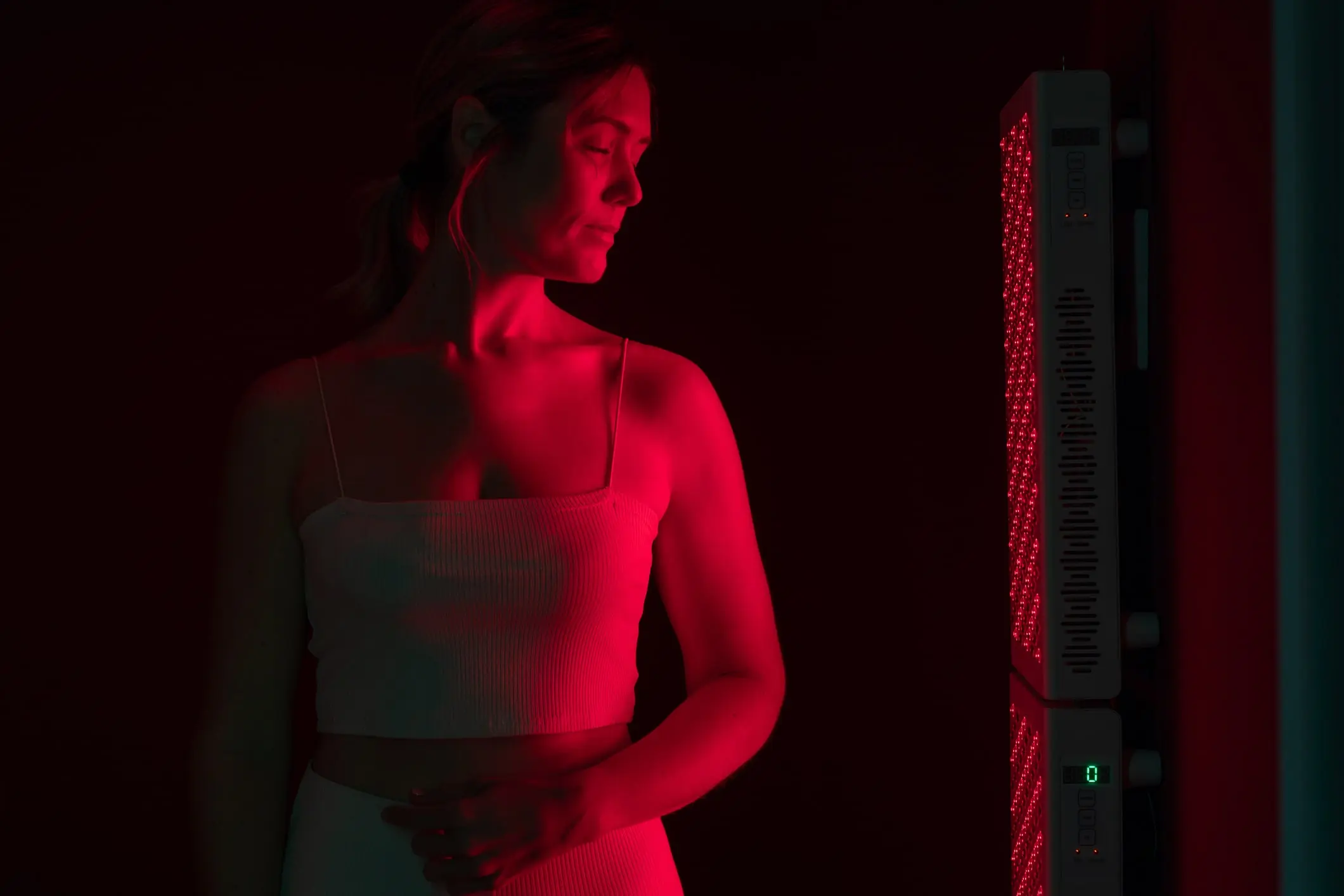LED Light Therapy May Help Improve Symptoms Of Alzheimer’s Disease
- Studies suggest that light therapy could be beneficial for alleviating insomnia and psychological difficulties in individuals with Alzheimer's.
- It is noted that pharmacological treatment can cause adverse reactions and increase the chance of falls, whereas light therapy is usually free of such consequences.
- Light therapy involves exposing the patient to certain types of light, such as full-spectrum or polarised light, and has been proven to improve memory and focus. It can also reduce anxiety and agitation in those with Alzheimer's and dementia.
A study suggests that using light therapy may be beneficial for people with Alzheimer's disease, as it can help to improve their sleep and mental-behavioural symptoms.
For this meta-analysis, researchers reviewed randomised controlled studies that evaluated the effectiveness of light therapy for Alzheimer's and dementia.
598 participants from seven countries participated in 15 high-quality studies conducted between 2005 and 2022.
The study revealed that light therapy may be advantageous for individuals with Alzheimer’s and dementia in a variety of ways, including:
Sleep efficiency measures how much time a person spends in bed is spent sleeping, as opposed to lying awake.
A measure of the steadiness of circadian rhythms, or how regularly daily activities are performed, is known as increased inter-daily stability.
Variability between days of rest and activity, known as interday variability, can disrupt the body's natural circadian rhythms.
The researchers found that light therapy was effective in decreasing symptoms of depression and agitation, as well as reducing the burden of care on caregivers in individuals who have Alzheimer's disease.
Those living with Alzheimer's disease may experience behavioural and psychological symptoms of dementia, as well as sleeping issues.
A high number of individuals struggling with Alzheimer's will present behavioural and psychological symptoms such as restlessness, physical aggression, and depression. Furthermore, sleeping problems can arise during the initial stages of the condition and can persist throughout. These symptoms can harm the patient's overall health and be a great source of stress for caregivers.
Current Treatments Vs. Light Therapy For Alzheimer’s Disease
Behavioral and psychological symptoms are often treated with antipsychotic or sedating medications, which can have dangerous side effects such as increased risk of falls, pneumonia, and even death. Therefore, non-pharmacological strategies such as music should be considered as the first course of treatment.
Therefore, it is essential to consider the individual's mental health when deciding whether light therapy is appropriate for them. Additionally, it is necessary to ensure that the light is not too bright or too prolonged, as this could lead to adverse effects.
Further research is needed to understand better the effects of light therapy on people with Alzheimer's, as well as to identify any potential side effects. Additionally, more extensive studies should be conducted to evaluate the effectiveness of light therapy.
It is also essential for clinicians to understand the long-term effects of treatments, such as changes in functioning over time. Additionally, this knowledge can help clinicians better manage their patients' symptoms and make more informed treatment decisions.
Despite extensive research on the effects of photomodulation on psychobehavioral symptoms in dementia patients, not much progress has been made in translating these findings into real-world applications. This lack of progress is likely due to various factors, including inadequate funding.
Due to the cognitive impairments associated with dementia, delivering cognitive behavioural therapy for insomnia is challenging in this population. Furthermore, there is not enough evidence to support the effectiveness of this treatment for individuals with dementia.
For individuals who have dementia, I suggest utilising behavioural interventions to promote a consistent day and night sleep cycle. Examples of these interventions include regular sunlight exposure during the day and restricting daytime napping.
The Future Of Light Therapy
The researchers noted the limitations of the study:
- The types and severity of dementia varied from study to study.
- Several papers needed to adequately explain their randomisation process, which could lead to potential bias in results.
Despite this, experts suggest that light therapy should be closely examined as a potential treatment for Alzheimer’s disease.
Research into light therapy as an alternative treatment for mental health issues is ongoing, but results are mixed. This is due to the large number of variables, such as intensity and duration of the light therapy, that need to be considered when evaluating the effectiveness of the treatment.
This meta-analysis, which evaluated 15 randomised controlled trials, concluded that light therapy could be a viable option for improving sleep and behaviour in people with Alzheimer's disease. The findings suggested that light therapy was associated with a significant reduction in sleep and behavioural symptoms of dementia, as well as few side effects. Therefore, light therapy could be a promising treatment for dementia.
Connect with one of our doctors at Mobi Doctor with the click of a button and receive the care you require.






